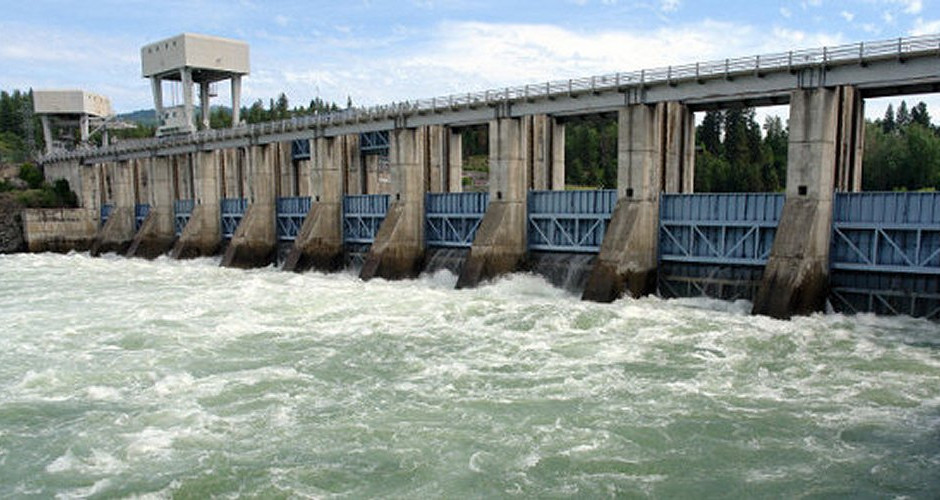Mention water here in North Idaho and people get passionate; mention water rights and folks get downright serious. Such was the case earlier today when a large group of citizens, special interests’ groups, agencies and businesses owners met in Sandpoint to discuss water and water rights.
Hosted by the Lake Pend Oreille Alliance (LPOA) and moderated by popular North Idaho Liberty Legislator, Rep. Heather Scott, the informational meeting was the first of what hopes to be more North Idaho water rights meetings. The meeting lasted over two hours and there was a broad diversity of presenters providing information ranging from Idaho water rights, regional battles over water rights, legal definitions of water rights and the pending adjudication process.
The adjudication actions in District 1 coupled with the complexities of how various entities use or are affected by the actions of others who use the waters of Boundary and Bonner counties makes this topic particularly relevant now.
The crowd was treated to thirteen different speakers who represented a diverse group of interests all related to water and the rights associated with it. These knowledgeable individuals brought their expertise to light and helped define complex issues into manageable educational snippets.
Several speakers really opened the eyes of listeners with their information. Elaine Willman, MPA, whose expertise in interactions between native tribes, the Bureau of Indian Affairs (BIA) and the federal government pointed out the importance of this type of meeting and educating the public so they can be ready when the feds and tribes try to covertly take water rights.
Norm Semanko, a water law attorney from Boise, with ties to North Idaho, gave a good lesson on why citizen engagement in the pending water adjudication process is critical. Former Bonner County Commissioner Todd Sudick also made an excellent presentation on how closely intertwined Idaho water, mainstream Columbia dam operations and the insatiable demand for power in California are linked. Idaho may think it currently controls the destiny of its water but lots of other out of state interests are eyeing it heavily.
The common concern for North Idaho water transcends party lines and political disagreements. Positive results and solutions will have a better chance of success when residents recognize their rights, can clearly articulate those rights, and are willing to take the appropriate steps to fight to protect those rights.
Rep. Scott hit the proverbial nail on the head when she summarized the point of the meeting, stating
“I can assure you we are stronger together and that north Idaho has the local expertise, desire and commitment to show our state, federal government, other states, and other nations we place a premium value on our water for its quality, quantity, economic impacts, recreational and environmental significance.”
The LPOA believes that an educated public will be the best defense to ensure prudent guidance for use of our most precious resource in the coming years, be it through legislative actions related to water adjudication, conservation measures by citizens, local control of dams and related facilities and use of best available technologies for protecting water quality and quantity.
Dennis Hall, from LPOA, announced their group’s intentions to litigate the federal government in an attempt to return ownership of the COE’s Albeni Falls dam back to state ownership. The grounds for this legal issue were laid back in 1927 with Idaho State Law 67-43047 and further strengthened in the Flood Control Act of 1950 and Senate Document #9 (81st Congress). Hall knows it will be a battle but also believes North Idaho residents will rally around this idea in order to maintain local control and enjoy the greatest benefits from their most precious resource.
When asked her thoughts, Rep. Scott said she would certainly be willing to support and sponsor state legislation that provided a long term operational plan for the dam and public seed money to ensure it would be successfully run by a local public entity. Rep. Scott commented that Idaho residences should be first in line to receive any dividends payments from the sale of future Albeni Falls dam generated power much like Alaska residents receive an annual dividend payment for the sale of their natural resource – oil. Scott noted that neighboring Washington has a successful Public Utility District (P.U.D) in nearly every county and Bonner County could follow that model.
All speakers agreed that all North Idaho residents must understand that in order for this process to be a success, all must be ready to work around differences and come together as a local unified force to protect our water and ensure its multiple uses remain viable. This will be critical to ensure North Idaho water remains under the control of North Idaho residents and first and foremost meets the needs of our families, businesses, and communities.


